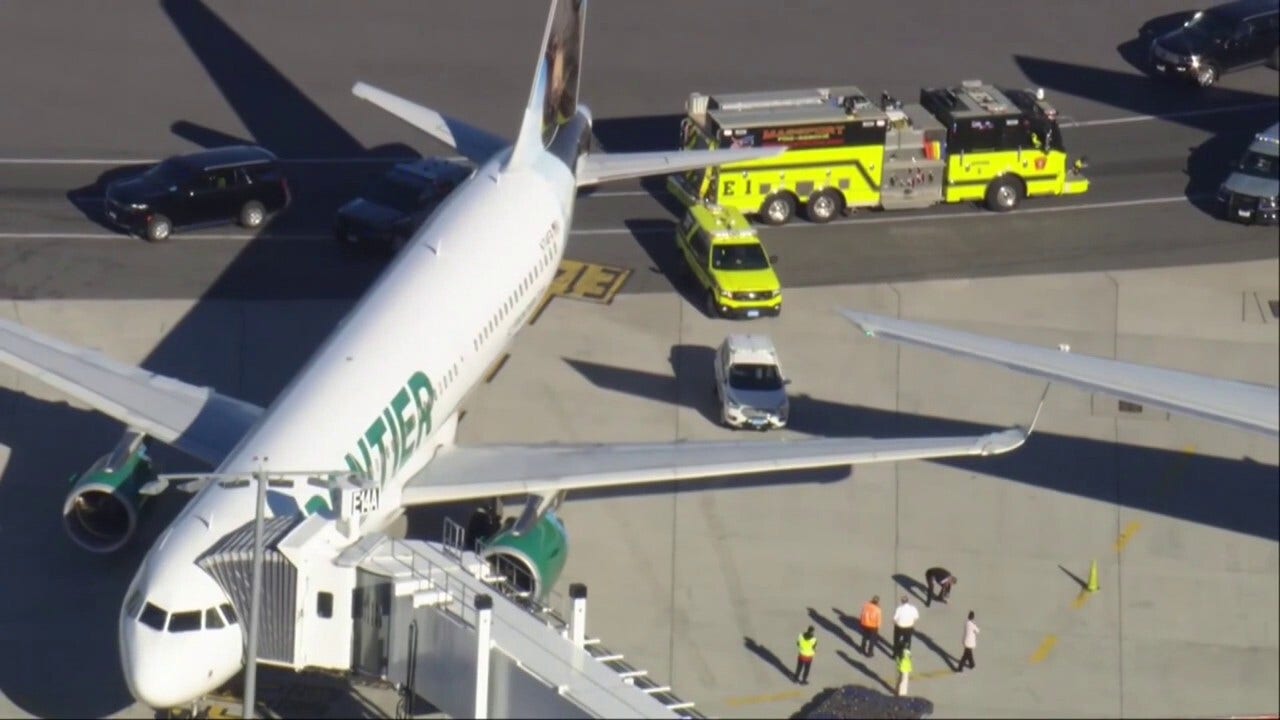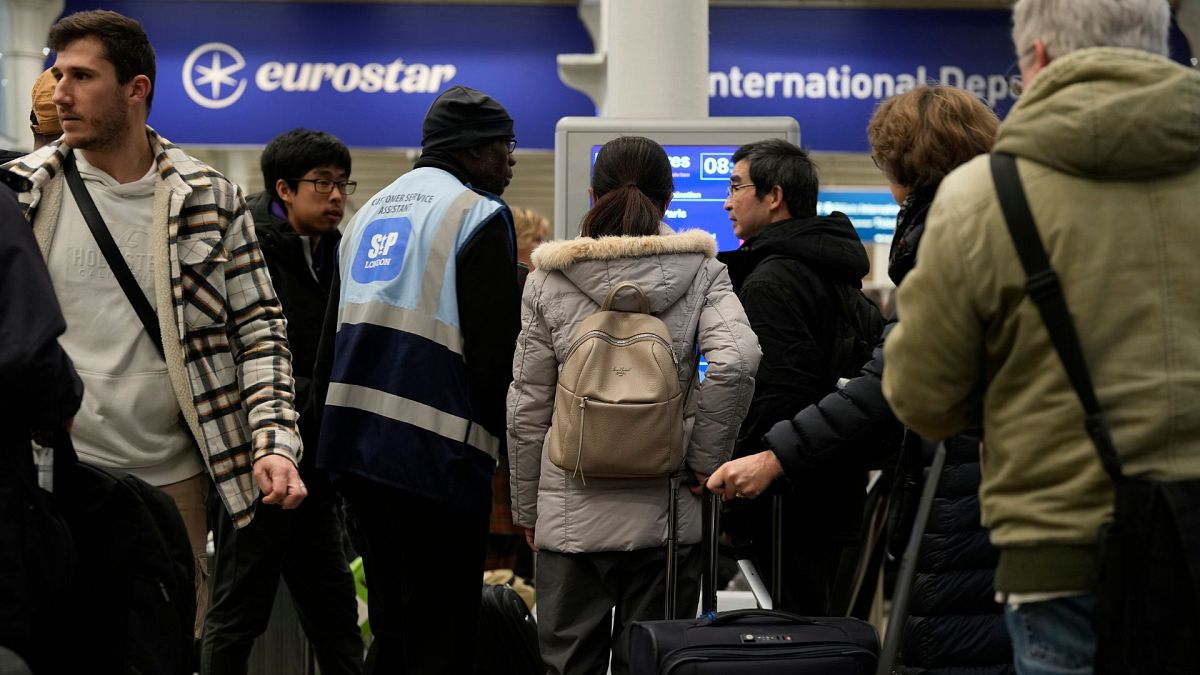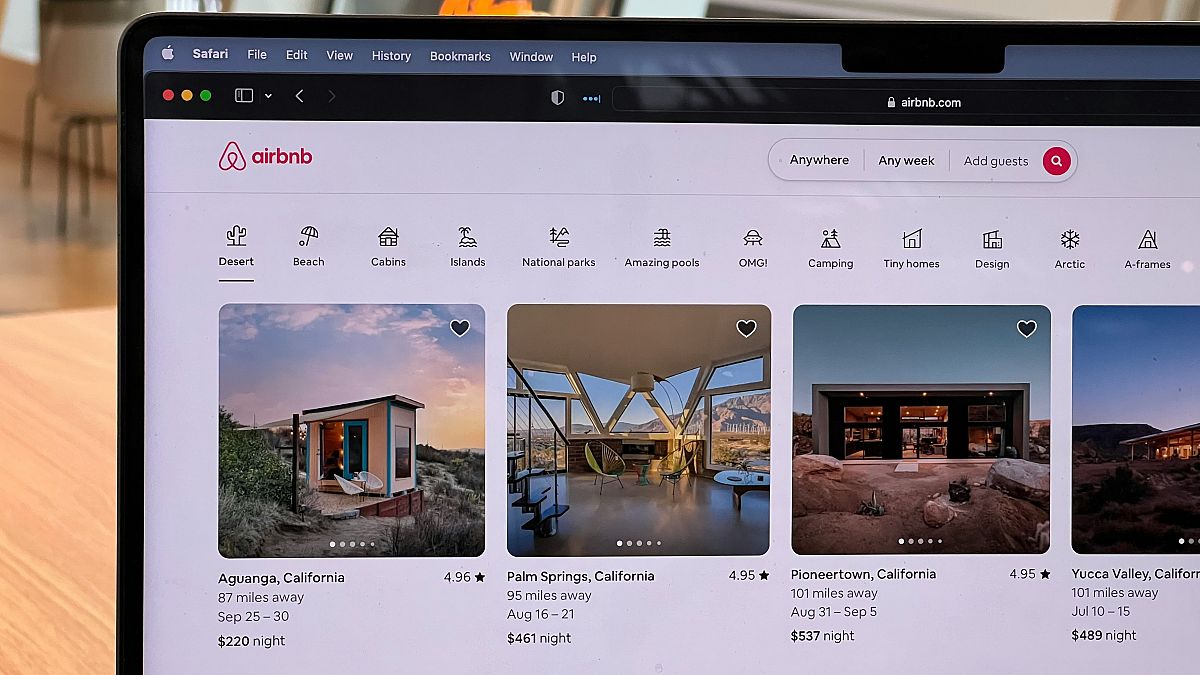Every port, airport and land border has to install new technology before the Entry/Exit System launch on 10 November.
Travellers from outside the EU are getting ready for the launch of the new Entry/Exit System (EES) on 10 November, but are Schengen countries ready to welcome them?
There’s been much trepidation about Europe’s new digital border system, which has been repeatedly delayed.
But, finally, new scanners are appearing at airports across the EU and processing areas have been set up at international ports and train stations.
Millions of euros have been ploughed into preparing for the new checks, which will register non-EU passengers’ biometric data each time they enter and exit the Schengen Area.
Still, tourists have been warned of potential delays and queues at checkpoints when the EES launches this autumn.
What is the UK doing to prepare for the EES?
The changes will arguably hit post-Brexit Britain the hardest, with travellers forced to jump through new hoops when visiting the EU.
While airport checks will be carried out on arrival in EU countries, those for international train, car and ferry services will take place before departure from the UK.
The UK government is working hard to reduce queueing and disruption. This week, it announced £10.5 million (€12.5m) in funding to support preparations at the Port of Dover, Folkestone’s Eurotunnel and Eurostar at St Pancras train station in London.
This money is being used to set up the technology and processes needed for smooth EES registration, including establishing a dedicated processing site at the Port of Dover and installing additional self-service kiosks for Eurotunnel and Eurostar passengers.
At these kiosks, UK travellers will have to register at the border by having their fingerprints and photographs taken.
The funding will also be used to “undertake rigorous testing to reduce the risk of disruption”, according to the UK government, and support recruitment and training of staff to contribute to smoother EES implementation.
‘Nobody wants to see excessive queues’
Ministers in the UK say the funding will help minimise disruption for British travellers and ensure EES registration gets off to a smooth start.
“Nobody wants to see excessive queues at our ports, which is why we’re providing this funding to ensure our borders are as prepared as possible for the upcoming change – despite EES being an EU initiative,” says UK Future of Roads Minister Lilian Greenwood.
“Since coming into government, we have been reviewing plans and closely supporting ports to make sure they have the right processes in place so that EES registration can be smooth and queue times kept to a minimum.”
The government says the Port of Dover, Eurotunnel and Eurostar are “now on track for a smooth transition ahead of implementation later this year”.
Despite raising concerns earlier in the year, all three ports now offer a rosier picture of the EES implementation.
“Eurostar will be fully prepared and compliant by November, ensuring a smooth transition for all our passengers,” says Simon Lejeune, Eurostar chief safety and stations officer.
Yann Leriche, CEO of Getlink – which operates Eurotunnel – adds that thanks to two years of preparations and £70 million (€83m) in investments, “when the new regulation is introduced, people will travel through the Channel Tunnel just as easily as they do today.”
While it has been touch and go for some countries like Malta, which until July was expected to implement an alternative manual system after failing to start EES preparations early enough, the European Commission now insists all Member States are ready for the changes.
“At every single airport, every single harbour and every single road into Europe, we will have digital border controls – all connected, all switched on at the very same time,” European Commissioner for Home Affairs Ylva Johansson said on 16 August.
Are delays inevitable when the EES launches?
Despite these preparations, UK travel agents remain dubious about the EES launch.
A lack of awareness among travellers and varied levels of preparedness at different airports could cause “long queues, chaos and confusion”, travel association AITO has warned.
It has called for an extended transition period and for checks to be relaxed when waiting times are lengthy.
However, the European Commission confirmed to Euronews Travel in July that “all travellers subject to EES will be recorded in the system at all border crossing points from day one,” adding that it has provided all EU Member States with the “necessary tools to ensure a smooth traffic flow”.
A mobile app allowing passengers to pre-register their data before travelling will be available in some countries, but this is being adopted on a voluntary basis.
Concerns have also been raised about the EES launch clashing with the phase-in of the UK’s own Electronic Travel Authorisation (ETA) for visa-free travellers, which began in May.
The introduction of the ETIAS travel system in the first half of 2025, which will require non-EU visa-free travellers to obtain a €7 electronic travel authorisation, is expected to complicate travel even further.
Read the full article here

:focal(1222x414:1224x412)/origin-imgresizer.eurosport.com/2024/11/25/4065778-82453208-2560-1440.jpg)














